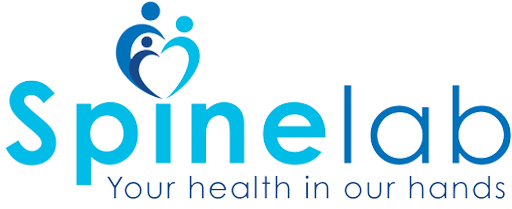Frequently asked questions
 Many people have never been to a Chiropractor before and may have questions they would like to ask us.. We have tried to answer some questions frequently asked, which may help you to understand more about our treatment and how it works.
Many people have never been to a Chiropractor before and may have questions they would like to ask us.. We have tried to answer some questions frequently asked, which may help you to understand more about our treatment and how it works.
Brochures and information are available in the clinic and we are happy to help you with any questions you may have. Please feel free to call or email us and we will endeavour to get back to you as soon as possible.
Most of all, we value your interest in our clinics and would be happy to answer any questions you may have, by either email or over the phone.
What is Chiropractic?
Chiropractic is a primary healthcare profession regulated by statute. Literally translated means “done by hand”. Hence chiropractors traditionally don’t prescribe drugs or carry out surgery. Chiropractic is a stand alone system of healthcare based on the premise that your body is designed to be naturally healthy with its own internal program to help you function at 100%, stay well and heal (homeostasis).
- Your body is under the direct control of the nervous system.
- Any mechanical interference to the nervous system can affect your health and well being, as your body cannot adapt in a healthy way to poor posture, injury, stress and chemical overload, to name but a few.
- In time this leads to dis- ease (loss of ease) resulting in degeneration and pathology (medical disease).
- Chiropractor typically use manual techniques (adjustments) to release the neuromechanical stress on the body. These changes in movement that interfere with the nervous system are known as a vertebral subluxation complex
- This allows your normal physiology to kick in and help you get fit and well again.
At SpineLab, treatment also uses functional nutrition, exercise, physical therapy, relaxation techniques and ergonomics to assist in your recovery, holistically.
Chiropractors don’t just treat bad backs. At SpineLab we focus on helping you reach new levels of health and well being rather than just ridding you of your pain.
In other words Chiropractors look at your well being rather than treating sickness and symptoms.
How does Chiropractic differ from Physiotherapy and Osteopathy?
All 3 professions are forms of manual therapy and do treat similar musculoskeletal problems successfully.
- Chiropractors are trained in similar subjects as to the medical doctor. In particular, chiropractors are trained, so they know what they can and cannot treat safely.
- This involves studying subjects like general and differential diagnosis as well as medical imaging, ultrasound and radiology.
- Chiropractors are trained to take and read their own x- rays.
- Chiropractors work and view the body as a whole and very often find that the cause of your problem may not be where you feel your pain.
- Chiropractors are the only profession trained to diagnose and treat the vertebral subluxation complex.
- Chiropractic treatment users adjustments NOT manipulation.
- Adjustments are a very fast technique that when applied have effects on the central controlling pathways to and from the brain. These have far reaching effects that allows chiropractors to see results in very difficult cases and presentations beyond “back pain”.
What are your qualifications?
All Chiropractors in the UK have a legal requirement to be registered with the General Chiropractic Council. In doing so they must have a minimum education requirement of 4 years at a recognised chiropractic college, which today gives a BSc (Chiropractic) qualification. Chiropractors who work at our clinics are also required to study Sacro Occipital Technique and Craniopathy, with a view to gain post graduate qualifications in these. Dr Carl is also a fellow of the Royal College of Chiropractic and holds a PgCert in Neuroscience. Chiropractors also have a legal requirement of 15 hours a year of CPD.
How long will a course of treatment last?
Treatment times are geared up to respect your time. So we try and have patients in and out of the clinic within twenty minutes., allowing you to go to work, if a morning appointment and similarly home to your family should you be seen by us later in the day.
Can a chiropractor that examines a child also treat the father’s injured knee?
As all our chiropractors are trained and practice SOT they will have experience in paediatrics, extremity adjusting, sports injuries as well as visceral techniques and applied nutrition. We commonly see the family from grandma, grandpa to their grandchildren.
Is treatment painful?
Absolutely not. Though we acknowledge that many patients come to us in pain already, treatment itself should not be painful, but maybe uncomfortable in very acute cases. As for babies and children, we use very specialised gentle techniques on them.
Do you recommend other practitioners?
When we feel we cannot help you, yes we will recommend a specialist or someone else who can. With your consent, we also keep in contact with your GP so they are kept in the picture as to your treatment plan.
Are you covered by health insurance?
All major health insurers cover chiropractic. However they may require a referral and may have varying limits of cover depending on your policy. Some insurers do require the chiropractor to have been in practice for a certain period of time.
Do I need to be referred by my GP?
You don’t have to be referred directly by your GP unless you are wanting to make a claim through your health insurance, as most companies prefer you taking that route. With your consent we do write to your GP so that he can be kept up to date with your care.
Do you take x-rays
X rays are not routine, but form an essential part of chiropractic training and diagnosis, particularly in ruling out anything sinister or a contraindication to care. We have our own x ray facility on site and Dr Carl is one of few chiropractors who is a trained radiographer. However where possible we prefer to use MRI scans.
Do I need to bring anything with me when I come?
If you have any previous records, xrays or MRIs please bring them along. You should be emailed a confirmation of your first appointment and with this a registration form that we would like you to fill in and bring to this appointment.
How do I find your clinic?
Can you give me directions to your clinic?
What Buses & Trains can I use to get to SpineLab?
Local buses routes have stops nearby Spinelab – 107, 113, 186, 288, 614
Edgware Northern Line and Mill Hill Thameslink are the nearest stations to SpineLab.
Parking at SpineLab
We have our own car park at SpineLab. Spaces are available at the rear and side of the building.
Any Further questions?
Please feel free to email us your questions.
